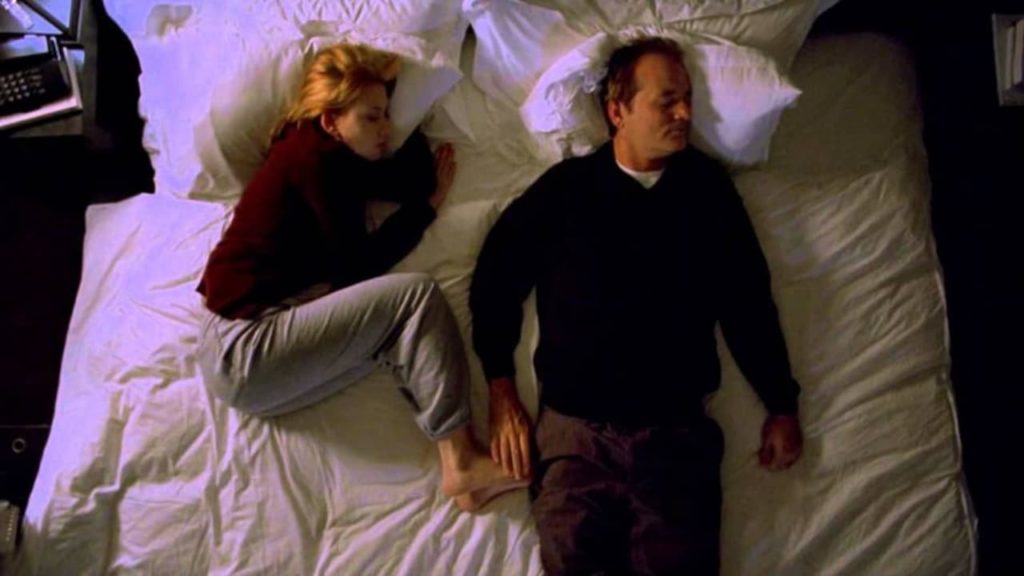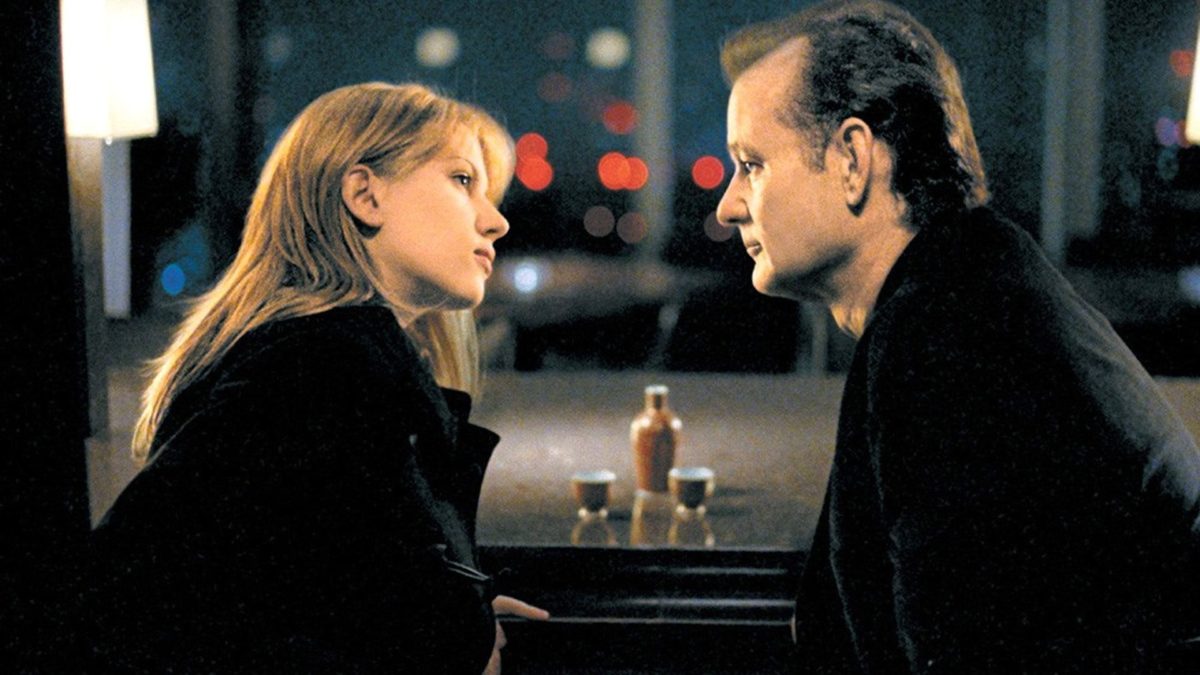Everything about Lost in Translation is designed to make Tokyo feel like an alien world: remote people, settings, and traditions, with an upside-down clock so sleep is an illusion. The editing is, at times, elliptical, with a disorienting sense of space and time. It builds a real sense of isolation, making the connection between Bob (Bill Murray) and Charlotte (Scarlett Johansson) more profound.
Bob is a over-the-hill comedian in Tokyo to record a whiskey commercial for a quick paycheck. Charlotte is the wife of a buzzy celebrity photographer. They find themselves in the same hotel, each completely lonely in a foreign city, until they cross paths and form an unexpected connection.

The otherizing of Tokyo is a double edged sword: It serves the arc of the characters well, but it dehumanizes the people of the city, forcing them into exaggerated stereotypes. It’s not inherently racist and doesn’t really bother me (because it makes the rest of the movie work), but I can see why it puts a lot of people off.
Part of the appeal of the kinship between Bob and Charlotte is how slow it simmers: There’s no distinct “meet cute” — a couple of glances and a drink at a bar that slowly builds into a shared sense of connection and trust. In other words, it feels a lot more like a real human relationship than your typical romantic comedy.
The bond they end up sharing is that special kind where you simultaneously barely know each other but also deeply understand each other; in fact, your lack of shared experiences allow you to speak more candidly and spontaneously than you would with a close friend.

It’s all very touching and warm, more about mood than narrative, and far less ooky than a May-December romance typically is. Sofia Coppola treads very carefully in letting Charlotte drive the relationship so that it doesn’t come across as a male-gazed fantasy.
Johansson is great, but it’s Murray who really leaves an impression. It’s, frankly, a pantheon performance for me: He can be very funny (his pained “help!” on a fitness machine never fails to make me laugh), but his weariness gradually transformed to affection is absolutely palpable. A truly great dramatic turn for the comedian, deeply informed by the fact that he’s playing a slight variation of himself.

Then there’s the ending: Oblique and perfect. A private moment for two characters to share that the audience isn’t privy to. It introduced a new cinematic term into my lexicon, the “Lost in Translation” ending, as seen in Onward among others.
It all adds up to a classic. Yes, an idiosyncratic, culturally walled-off classic, but a classic nonetheless.
- Review Series: Top 100 (2009 List)
Is It Good?
Exceptionally Good (7/8)
Dan is the founder and head critic of The Goods. Follow Dan on Letterboxd. Join the Discord for updates and discussion.

